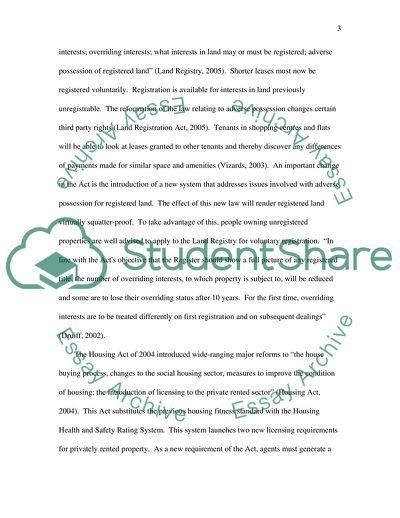Cite this document
(The New Land Registration Act Essay Example | Topics and Well Written Essays - 2250 words - 1, n.d.)
The New Land Registration Act Essay Example | Topics and Well Written Essays - 2250 words - 1. Retrieved from https://studentshare.org/law/1703274-land-law
The New Land Registration Act Essay Example | Topics and Well Written Essays - 2250 words - 1. Retrieved from https://studentshare.org/law/1703274-land-law
(The New Land Registration Act Essay Example | Topics and Well Written Essays - 2250 Words - 1)
The New Land Registration Act Essay Example | Topics and Well Written Essays - 2250 Words - 1. https://studentshare.org/law/1703274-land-law.
The New Land Registration Act Essay Example | Topics and Well Written Essays - 2250 Words - 1. https://studentshare.org/law/1703274-land-law.
“The New Land Registration Act Essay Example | Topics and Well Written Essays - 2250 Words - 1”. https://studentshare.org/law/1703274-land-law.


